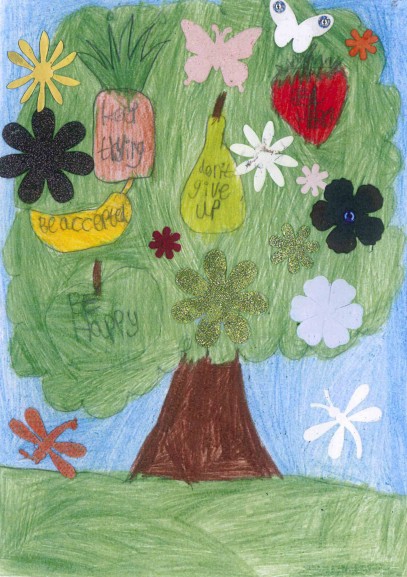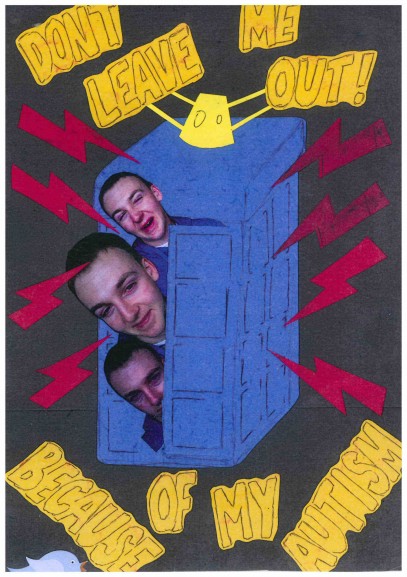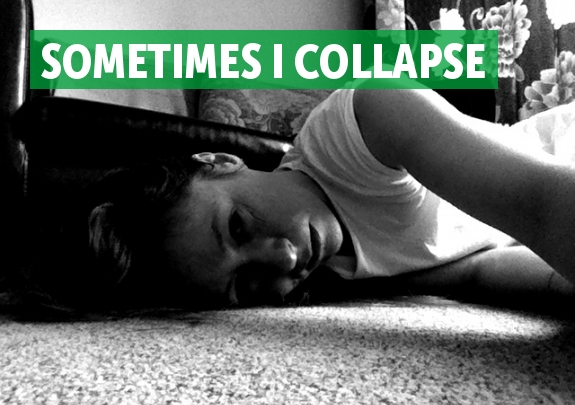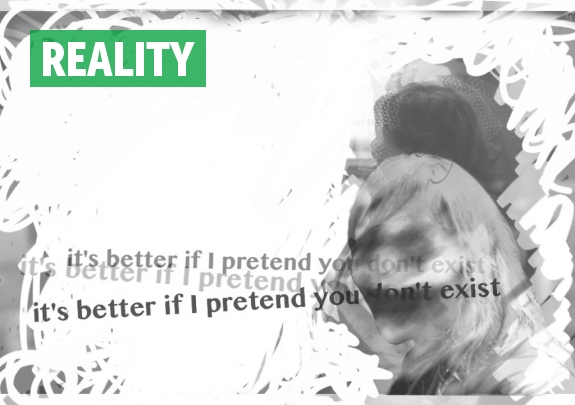
How many people aspire to be ordinary? Success is usually defined success as standing out from the crowd, being the focus of attention or doing something extraordinary.
But Shairaz’s wish is different.
Shairaz wants to be regarded as ordinary because, as he says, he and his peers are usually regarded as scroungers or superheroes.
Shiraz, who has a learning disability, says of the stereotypical perception of disabled people: “We shouldn’t only be portrayed when we do something amazing or something bad. We should also be portrayed when we are doing ordinary things. Most of us are not scroungers. It’s the government that has decided to offer us support, it’s not us begging. Many people can’t work and that’s not their fault, we shouldn’t be called scroungers.”
Shiraz is taking part in a new campaign launched today by the social care charity United Response. Along with a survey and a new report on attitudes to disability, there is an art project and exhibition from next week, Postcards From The Edges which focuses on the everyday lives and achievements of disabled people (see the examples on this page, view more on the charity’s dedicated project site and via this Guardian gallery).
The survey, report and artworks coincide with National Paralympic Day on Saturday, marking a year since the Paralympics – but the event’s impact may be fading, according to United Response’s survey. The aim of the survey, report and art project is to transform how the public sees disabled people.
For example, two thirds of the 1000 people surveyed say they see more disabled people in the real world than in the media, while four out of five say that the public does not know enough about disability.
While the research shows the Paralympics was a memorable event – Ellie Simmonds’ four gold medals is named as the best memory by 31% of respondents – less than one in five of respondents could name a disabled person who has become well-known in the year since the Paralympics. Meanwhile, 40% found it difficult to name a well known physically disabled person and only one in five could name a person with a learning disability.
The postcards, many of which will be showcased in an exhibition at Bankside Gallery in London, complements this research. The charity asked people – well-known or “ordinary”, with or without disabilities – to write or draw cards in any creative style. The only proviso was that the card design in some way responded to the question: “What do you want to tell the world?”.
United Response has collated the cards over the last eight months and the results – more than 550 pieces of art – are a snapshot of thoughts, hopes, fears, ambitions and everyday experiences of a wide range of people. There are submissions from older people with mental health needs, parents of children with autism, people with physical disabilities, children and social workers. Among the postcard designers are Paralympians Hannah Cockroft and Dame Sarah Storey, Olympian Sally Gunnell, Suede singer Brett Anderson and actor Emma Thompson.

The report from the charity’s campaigns panel (which Shairaz is a member of) underlines the messages from the survey and the art project. The publication, Superhumans or Scroungers, reveals the gap between the portrayal of the superhuman Paralympians and media coverage of disabled people.
“We shouldn’t be portrayed in just one light, as superheroes or scroungers,” says Shairaz about the report. “People should know more about our lives overall… I would just like to see us portrayed more as ordinary people. Yes we’re special in some ways, but so is everyone. It would be good to see television not just concentrating on our disability but on who we are and what matters to us, like the place we live. That would give everyone a chance to learn from different experiences and that might help everyone to stop generalising.”
The aim of the report and panel, Shairaz adds, is “to make people more aware of what disability is about…A lot of people have the wrong impression of people with disabilities. They think disabled people are all the same and should be classed under one branch. They don’t understand hidden disabilities, like my mental disability. A lot of people think that people with mental disabilities are crazy or stupid, but that’s not true.
“People make assumptions because they don’t understand. So I think the panel is about helping people understand and also telling them that we have rights and views and opinions. Our opinions count as much as able people’s opinions.”
The report stresses that media coverage of disability tends to focus on people with physical disabilities, meaning that people with learning disabilities, autism, mental health needs and other hidden disabilities are “almost invisible”.
Shairaz and his fellow campaigns panel members also worry about the growth in news stories about welfare with, as the report states, a simplistic representation of disability creating “a polarisation of who is ‘deserving’ or ‘undeserving’ of support”. The report explains, “it means there is very little attention given to ordinary disabled people or the positive contributions that they make”.
The postcards project ties into this, says Shairaz, because it offers people a wider vision of disability and of the achievements of disabled people in a positive, creative way. He adds: “It’s also good to tell people your experience, but nice to do it in a fun way… Life isn’t always serious and spilling your heart out. When people ask about my life I don’t say “Oh, I just mope about and feel sorry for myself”, I say I have fun too.”
Su Sayer, United Response’s chief executive co-founded the organisation 40 years ago when it was the norm for people with learning disabilities to be hidden away in large institutions. She adds: “While the last four decades have seen huge changes for many people with learning disabilities, there is still widespread prejudice and lack of understanding from the broader public. Many people still don’t understand much about disability or the lives of disabled people, let alone their achievements.”



Sayer adds that the two extremes of how disabled people are portrayed – lionised as superhuman or criticised as scroungers – is “far, far from the reality of the overwhelming majority of disabled people today…’ordinary’ disabled people are still very absent from public life”.
Shairaz agrees. “It’s important to know that it’s not just the people who can do great things at sport who are important,” he says. “Everyone is a hero in themselves. My girlfriend says I can be a hero sometimes, because of the support I give her.”
* The Postcards from the Edges exhibition opens at Bankside Gallery in London on Tuesday 10 September and runs until Sunday 15 September. It will be followed by a showcase at the Sage in Gateshead (1- 4 October), the Grant Bradley Gallery in Bristol (private view on the evening of 23 September) and the Camp and Furnace Gallery in Liverpool (4-10 November).
* Find out more about the project by visiting the Postcards website.

3 thoughts on “The man dreaming of being ordinary – and the campaign to help him”